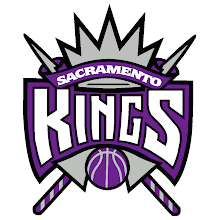Be Aware of Atrial Fibrillation
Many of you, I’m sure have been hearing a lot about Atrial fibrillation (AF or AFib) on TV ads lately. This is something as we age we should all be aware of, since AFib can cause a heart attack or a stroke (or both).
Atrial fibrillation is an abnormal heart rhythm. The four chambers of the heart usually beat in a steady, rhythmic pattern. Atrial fibrillation means that the atria (upper chambers of the heart) are fibrillating or twitching quickly and creating an irregular rhythm.
In at least 10 percent of the cases, no underlying heart disease is found. In these cases, AF may be related to alcohol or excessive caffeine use, stress, certain drugs, electrolyte or metabolic imbalances, severe infections, or genetic factors. In some cases, no cause can be found. Those with a known heart problem or heart disease have an increased risk of Atrial fibrillation.
Atrial fibrillation can also lead to more serious health problems if it isn’t treated. Because of this, people with atrial fibrillation are twice as likely to die prematurely as people with a normal heart rhythm. Since all of your cells depend on your heart for blood and nourishment, atrial fibrillation can affect your entire body.
When the atria quiver (the heart’s upper chambers) instead of contracting normally, more blood often gets left behind instead of being pumped into the ventricles. When blood pools like this inside the atria, it can trigger the formation of unwanted clots. These clots can break off, travel throughout your blood vessels, and then become stuck — decreasing the amount of blood that flows through the vessel.
Any tissue that has its blood flow reduced or completely blocked off can be damaged. This can happen, for example, in an arm, a leg, or an internal organ.
The risk of AF increases with age, particularly after age 60. If one has poor blood circulation in their legs, head and/or heart this can also be a sign of AFib.
The some of the most common symptoms of AF include:
■Feeling over-tired or a lack of energy (most common)
■Pulse that is faster than normal or changing between fast and slow
■Shortness of breath
■Heart palpitations (feeling like your heart is racing, pounding or fluttering)
■Trouble with everyday exercises or activities
■Pain, pressure, tightness or discomfort in your chest
■Dizziness, lightheadedness or fainting
■Increased urination (using the bathroom more often)
There are There are several tests that can be done to check for a fast or irregular heartbeat. Your doctor may order these tests if you are having signs or symptoms of a heart problem.
The goals of treatment for atrial fibrillation include regaining a normal heart rhythm (sinus rhythm), controlling the heart rate, preventing blood clots and reducing the risk of stroke or heart attack.
Many options are available to treat atrial fibrillation, including lifestyle changes, medications, catheter-based procedures and surgery (including adding a pacemaker). The type of treatment that is recommended for you is based on your heart rhythm and symptoms.
Information on our blog should not be used as a substitute for talking with your doctor. Always talk with your doctor about diagnosis and treatment information.
For more info:
National Heart, Lung, and Blood Institute of the U.S. Department of Health and Human Services
http://www.nhlbi.nih.gov/health/dci/Diseases/af/af_what.html
-------------------------------------------------------------------
Sacramento Life Force Home Health Care
2929 Fulton Avenue, Suite 2967
Sacramento, CA 95821
Phone: (916) 481-6825
Sacramento Life Force Home Health Care Web Site: http://www.SacLifeForce.com
City of Sacramento Business License # 129233
County of Sacramento Business License # 312924
State of California Small Business Certified # 37544
Member of the Sacramento Metro Chamber of Commerce
Monday, August 15, 2011
Be Aware of Atrial Fibrillation (AF or AFib)
Labels:
AF,
AFib,
Atrial,
CA,
Care,
Fibrillation,
Health,
Home,
Sacramento
Subscribe to:
Comments (Atom)
